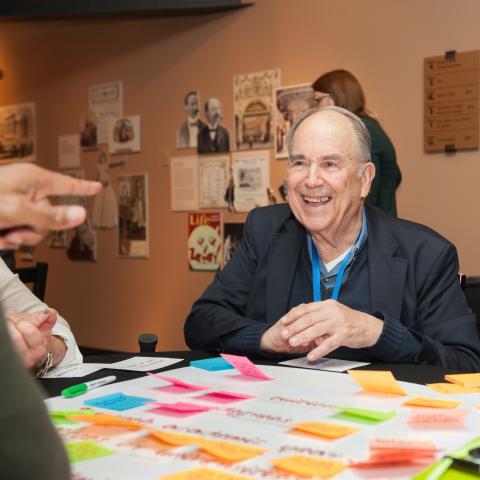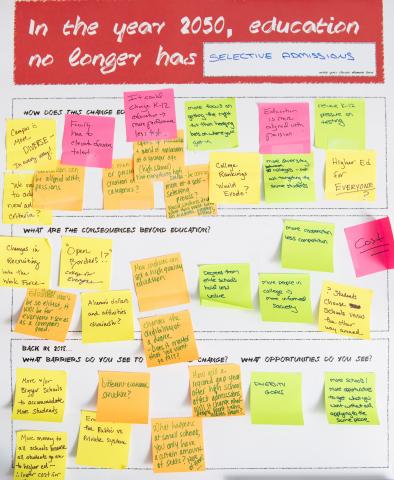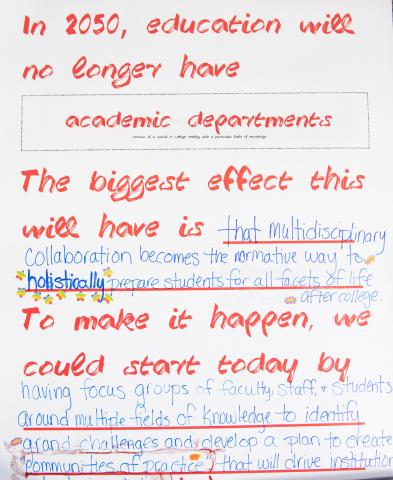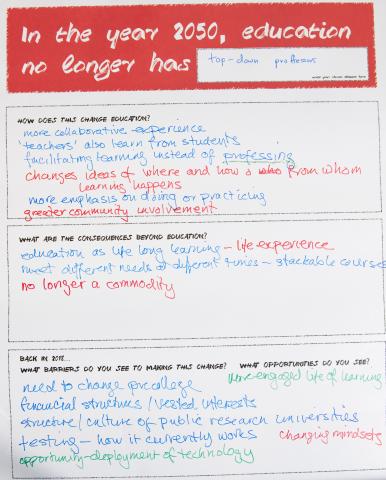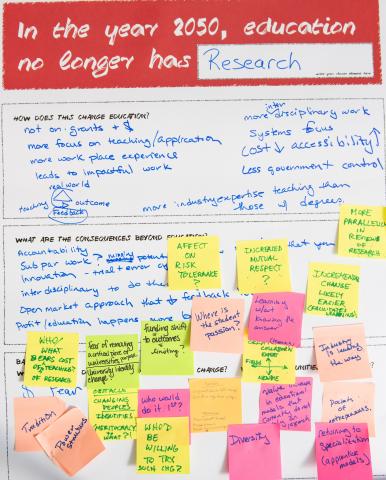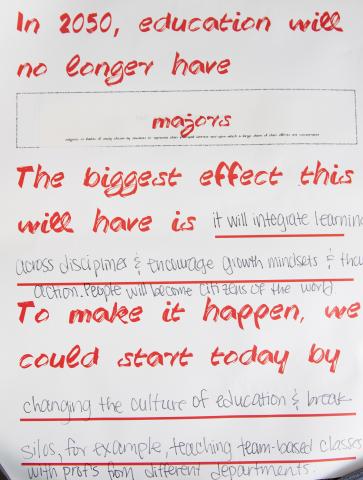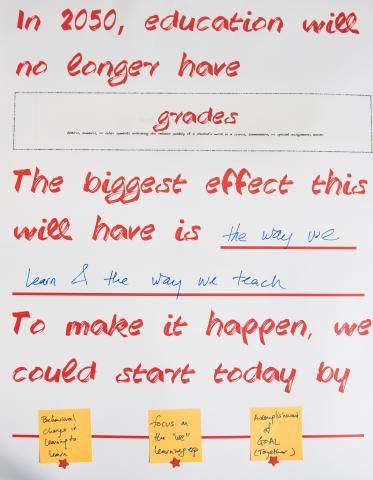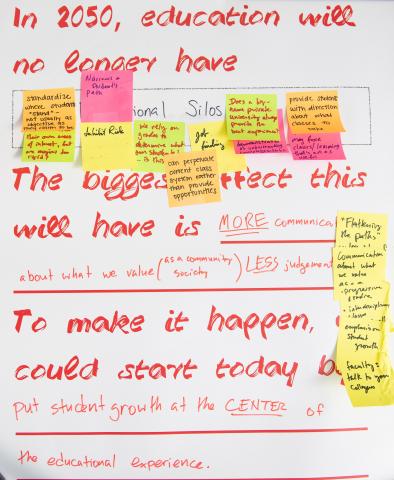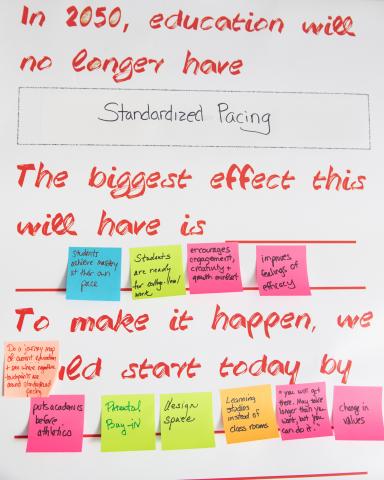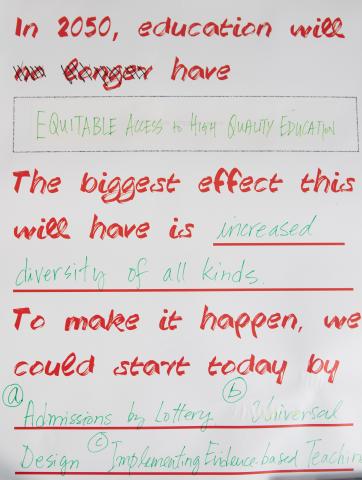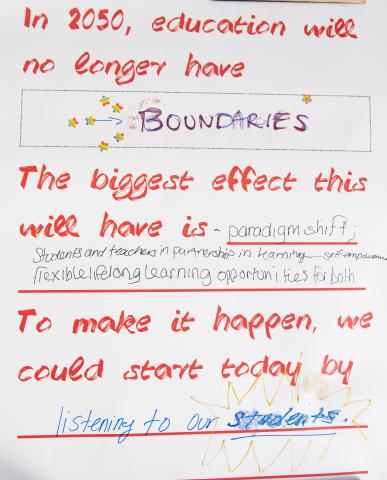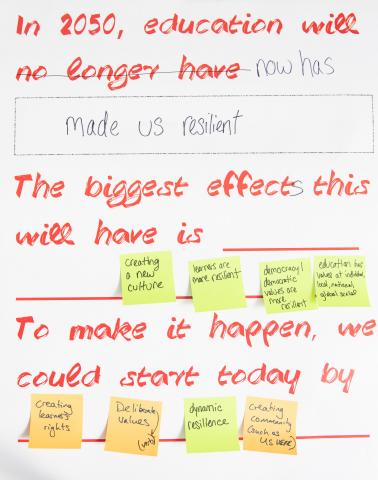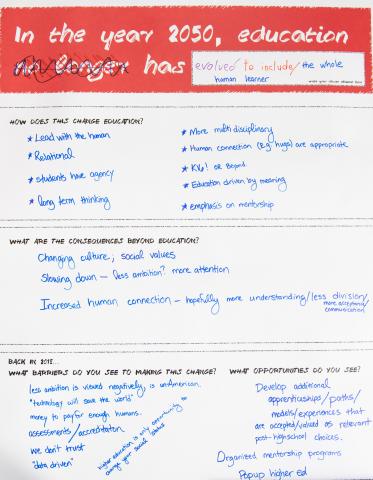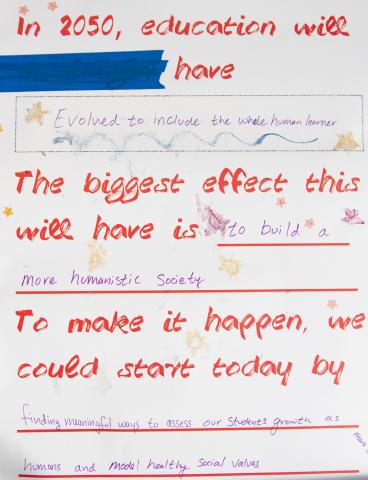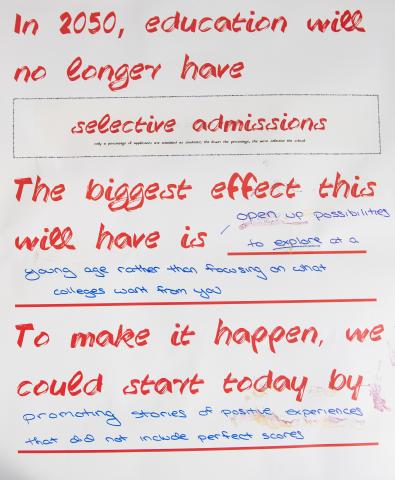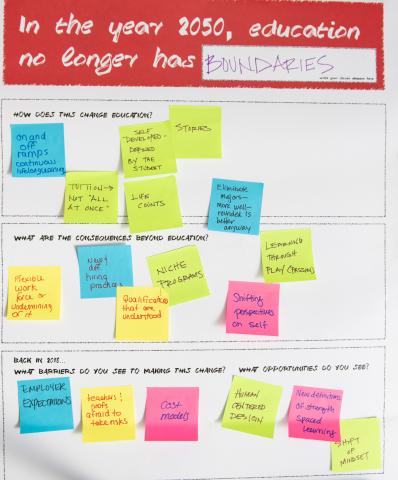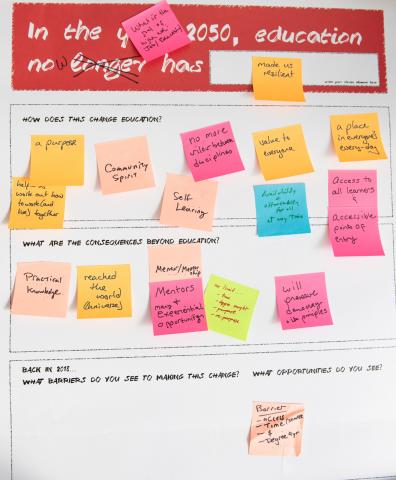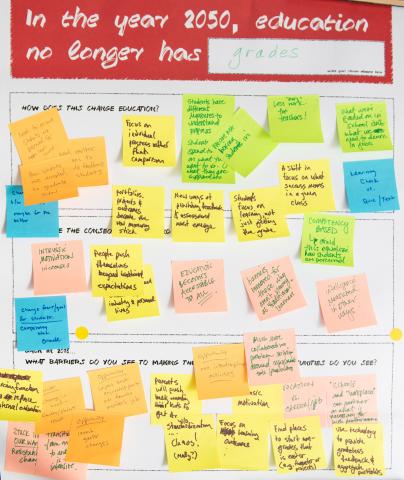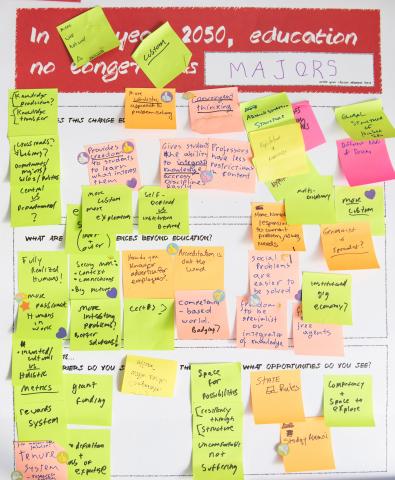A Look Inside the Dissent Track
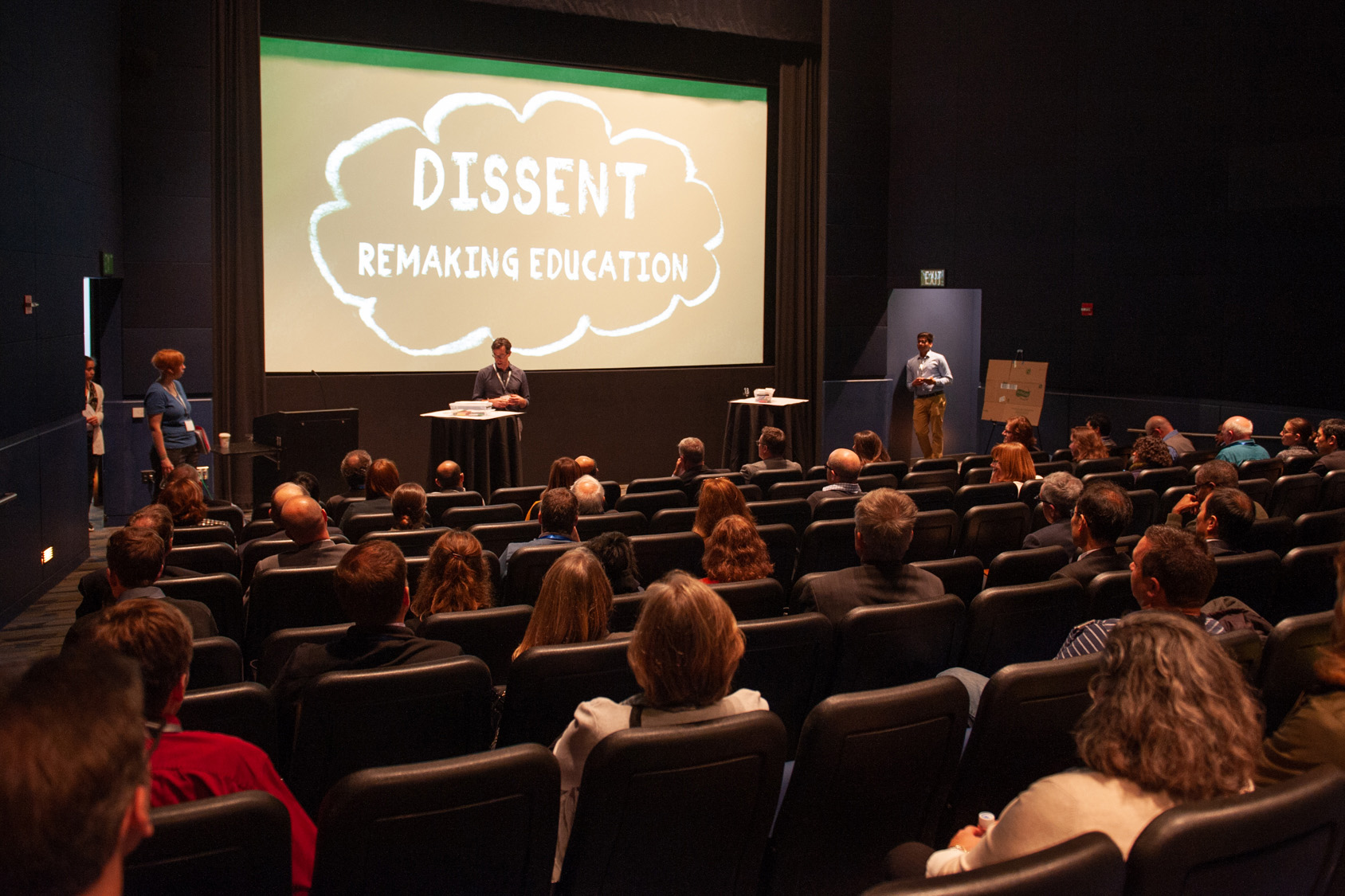 As participants walked into the Screening Room on the top floor of the Paramount Complex, protest signs adorned the walls. “Stop the Educational Industrial Complex!” “Education is not preparation for life: Education is life itself. – John Dewey”
As participants walked into the Screening Room on the top floor of the Paramount Complex, protest signs adorned the walls. “Stop the Educational Industrial Complex!” “Education is not preparation for life: Education is life itself. – John Dewey”
They sit in a semi-darkened screening room, the lights fully dimmed, and they watched a 30-second video that rapidly reviewed a litany of truths about education: the classroom, tests, grades, teachers, semesters, and then called them out as merely assumptions. “Get riled up...think big...dissent dramatically.” The tone was set. Forget what you know about education. Leave your baggage at the door.
Participants were instructed to file out of screening room, take a card with a number on it, and find the corresponding table in the lobby, randomly sorting students, educators, people from the business world, and others into small groups. Once at their tables, these groups of 5 or 6 were greeted by a student facilitator who gave them a simple instruction: Over the next 60 minutes, we’re going to remake education. First step: there are five cards on the table, each with a common educational element: classroom, teachers, tests, etc. Take a moment to discuss these things, how they work, why they persist. Then pick one and answer the following question: “In the year 2050, education no longer has…[fill in the blank].” What does that look like? They engaged with questions about how such a change would affect the delivery and reception of education and what implications it would have beyond educational systems. They contemplated whether or not this change would be a good one and if so, what barriers might exist in realizing this reality.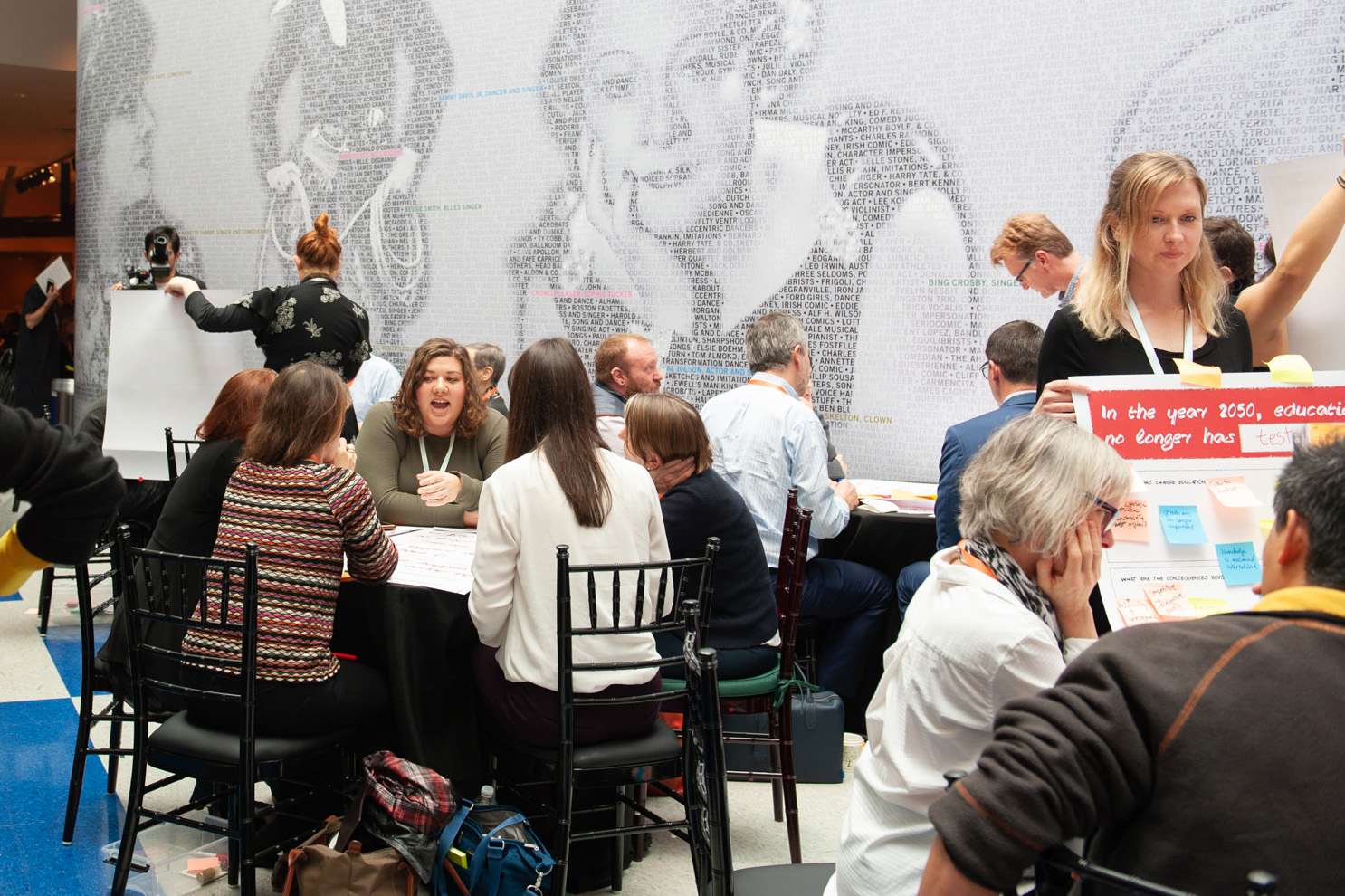
By speculating about a future without an element of what we assume is common sense, participants were encouraged to confront what’s sensible about education now, and why it has become so common. At the end of the speculative exercise, the groups filled out a Mad Lib style poster that would be hung up throughout the entire Paramount Center where their ideas of a future that dissents from the present could be shared with all attendees.
By the end of the day the lobbies were filled with posters showcasing enthusiastic, constructive, forward-looking expressions of an unfamiliar, but deeply optimistic vision of education.
Read more about why Dissent is important in this ASEE Prism op-ed "We Must Dissent" by Assistant Professor Alison Wood.
 As participants walked into the Screening Room on the top floor of the Paramount Complex, protest signs adorned the walls. “Stop the Educational Industrial Complex!” “Education is not preparation for life: Education is life itself. – John Dewey”
As participants walked into the Screening Room on the top floor of the Paramount Complex, protest signs adorned the walls. “Stop the Educational Industrial Complex!” “Education is not preparation for life: Education is life itself. – John Dewey”
In Dissent, participants were asked to imagine a future, 2050 to be exact, when education no longer has a fundamental element often taken for granted such as: classrooms, tests, teachers or grades. Working in groups the participants distilled their ideas into a single statement. Here are some examples of their work:
Dissent Testimonial
“The activity convincingly showed that we can dissent and should dissent with honesty and creativity for our own sake and for the common good of our students, colleagues and society in general.”
